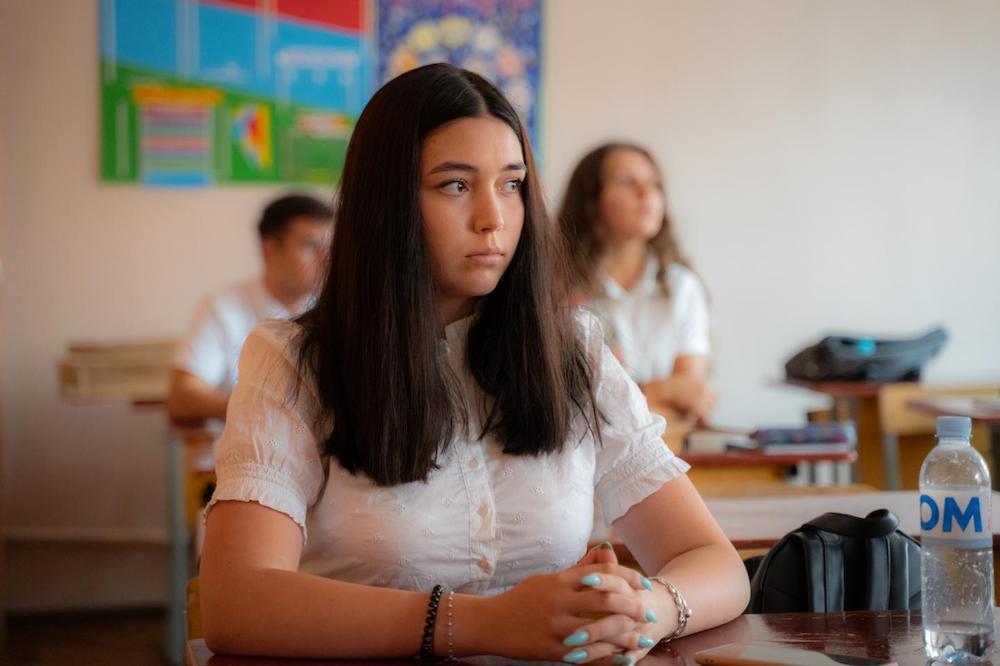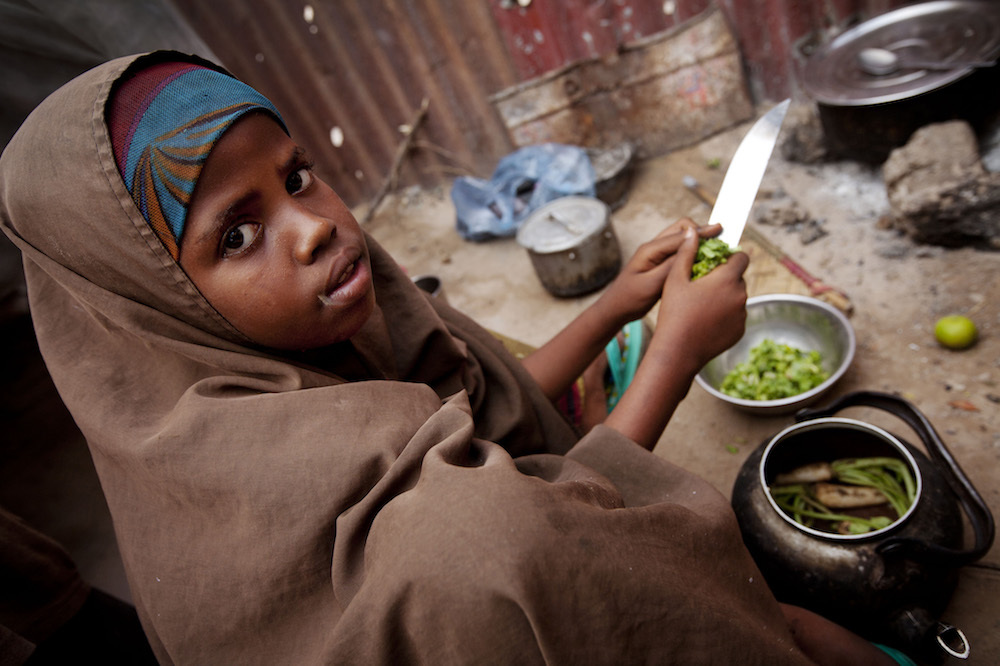
More chores for British girls means less time for schoolwork, Theirworld survey shows

Girls' education, International Women's Day
Research ahead of International Women's Day reveals that two-thirds of girls in the UK are doing more cooking and cleaning in lockdown.
A new survey by Theirworld shows that Covid-19 is having a disproportionate impact on girls in Britain. Many are taking on additional household chores such as cooking and cleaning, leaving them less time to do their schoolwork.
Two-thirds (66%) of girls and women aged between 14 and 24 say they are spending more time cooking for their families because of the pandemic, compared with just under a third (31%) of boys in the same age group.
They are also spending more time doing stereotypical household chores such as shopping (52%), cleaning (69%) and looking after sick relatives, our research found.
Ahead of International Women’s Day on March 8, the findings suggest that while the disruption to education over the past year is affecting all school children in the UK, the impact on girls is greater than on boys.
The findings will renew calls for governments to put education, especially for girls, at the heart of their responses to the pandemic, amid fears that Covid-19 will undo decades of progress for girls and women.
The research also suggested that it is not just girls’ academic performance which is at risk. One in five girls said that not attending schools was also having a negative impact on their mental health.

An educated female population increases a country’s productivity and fuels economic growth (UN Photo)
Before Covid-19, 132 million girls around the world were not in school, including 34 million of primary age. The pandemic has worsened the global education crisis and exacerbated inequalities, with 1.5 billion children – including 767 million girls – out of education at the peak of school closures.
There are fears that without urgent action, 11 million girls will never return to school, which will have huge consequences for wider societies.
Research shows that girls’ education is the driver of healthier, wealthier and more equitable societies. A child whose mother can read is 50% more likely to live past the age of five and twice as likely to attend school themselves. With just one additional year of schooling, a woman’s earnings can increase by 12%.
Theirworld President Justin van Fleet said: “These findings are alarming because they show that in rich and poor countries alike, even when huge strides have been made in relation to gender equality, girls risk falling behind as a result of the pandemic.
“This will have devastating consequences not just for girls but for everyone because the knock-on benefits of girls’ education are huge.
“As we emerge from the depths of the crisis, we must renew our commitment to education, particularly for girls, and remember that there is no better way of creating a more equitable recovery, and subsequently more equal societies, than prioritising girls’ education.”
Theirworld is calling on world leaders to maintain and expand education budgets, ensuring that education is at the heart of the recovery from the pandemic.

A girl helps prepare her family’s evening meal, outside their makeshift home, in the Majo camp for displaced people, in Mogadishu, Somalia (UNICEF / Holt)
Ahead of the G7 meeting of world leaders in June, Theirworld is calling for education to be at the heart of the Covid-19 response to ensure no child is left behind and becomes a long-term victim of the pandemic.
Sarah Brown, Chair of Theirworld, said: “There are reports that women’s equality could be pushed back by up to 10 years by the pandemic and this is a stark reminder that the fight for gender equality is ongoing.
“The findings from this study show that when girls are locked out of school they can easily become trapped in traditional household roles which can put their education in jeopardy.
“The unprecedented crisis of the pandemic brings the opportunity to focus minds on reimagining education for every girl and boy, and the innovative steps needed to reach every single one of the UN Sustainable Development Goals, which include providing a quality education to every child and achieving gender equality.
“In our view, quality education, especially for girls, provides the key to every other goal – a new educated global population will better serve the challenges of climate, nutrition and health everywhere.”
The findings are based on a survey, conducted by Theirworld in partnership with Hall & Partners. The survey was carried out among 1,000 UK-based respondents aged 14 to 30. The sample was nationally representative to age and region and gender.
More news

